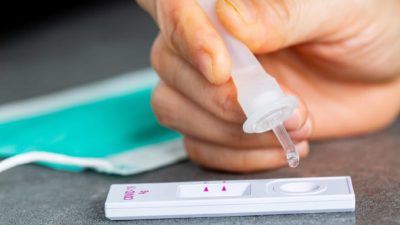Although it is trading lower, the NIB Holdings Limited (ASX: NHF) share price is performing a lot better than the S&P/ASX 200 Index (ASX: XJO) on Monday.
In late morning trade the private health insurer's shares are down 2% to $4.87. This compares to a 6% decline by the ASX 200 index.
Why is NIB performing better than the market?
This morning NIB provided a comprehensive update on how the coronavirus outbreak was impacting its business.
According to the release, the COVID-19 threat has created profound uncertainty about the company's previously communicated commercial outlook and FY 2020 market guidance. As a result, it has become necessary for the company to follow the lead of many others by withdrawing its guidance.
And whilst it is not in a position to provide any new guidance, it has provided investors with insights and assumptions about what the near term future might hold for the company.
Chairman Steve Crane advised: "Easily the most significant near term impact is the likely consequence of COVID-19 on discouraging discretionary treatment within private hospitals. Approximately 94% of all private hospital admissions in Australia are elective or planned with private hospitals accounting for about 66% of all elective surgery."
Mr Crane also notes that the outbreak appears to be assisting PHI sales and retention in both nib's Australian Residents Health Insurance (arhi) business and New Zealand (NZ) residents businesses. Net growth year to date in both businesses remains ahead of expectations.
Though, the chairman warned that there is a high risk that an economic recession and increased numbers of unemployed in both Australia and New Zealand could weaken demand for arhi and NZ in the future.
As he touched on above, Mr Crane advised that the coronavirus is discouraging discretionary treatments within private hospitals and could reduce its claims expense.
The company calculates that for every 1% drop in hospitalisation for the remainder of 2020, arhi claims expense (including risk equalisation) would fall by $8.8 million. Furthermore, a 1% drop in dental treatment would reduce claims expense by $3.5 million.
Though, once again, the chairman warned that the reduction in hospitalisation and other treatment would only be temporary. And once COVID-19 passes, it expects claims to resume their usual patterns of development.








